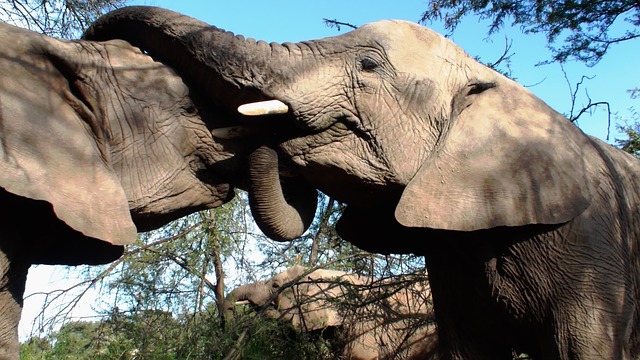A long-running debate among scientists and wildlife preservationists has been on whether or not the limited space in zoos is negatively affecting large animals, specifically elephants.
The large yet gentle, highly intelligent animals, which are generally used to frolicking in the wild, are often afflicted by obesity, shorter life spans and infertility, experts say. Since elephants are massive, people might assume that the confined spaces in zoos might impact an elephant’s life, with more vocal advocates arguing that elephants should not be placed in zoos at all, the Tech Times reports.
However, a huge collaboration of scientists has determined to settle the question once and for all in finding out how captivity affects elephants in zoos. The results have been surprising.
For the new study, over two dozen researchers collected and evaluated information on 255 elephants in 68 zoos in North America. To determine the enclosure size, scientists calculated from the total size of elephant habitats in zoos, which ranged from 7,700 square feet to 347,000 square feet.
The researchers likewise created a new measure named Space Experience to account for the observation that elephants use their space differently. The measure ranged from 1,200 square feet to 170,000 square feet per animal.
Surprisingly, the study found that there was no link between the size of the habitat and the primary indicators of elephant health, including reproduction and behavior such as swaying or rocking.
In fact, the elephants who walked more daily, as measured by GPS readings, were not thinner that the elephants that stayed in place. Instead of large spaces, the researchers found that the quality of said space was more important to the giant animals.
For example, diverse feeding methods and exercises, like hanging food, showed a strong association with positive well-being and good reproductive health in elephants.
Cheryl Meehan, lead author on the study, says that the team’s findings add a whole new dimension to the previously held thinking that more space is better. Even more astounding is that large, stable social groups seemed to be preferred by male and female African and Asia zoo elephants.
Meehan says that the elephants in these groups showed less repetitive behavior, while the elephants in isolated environments expressed more of the same.
The study was published in PLOS ONE.
























